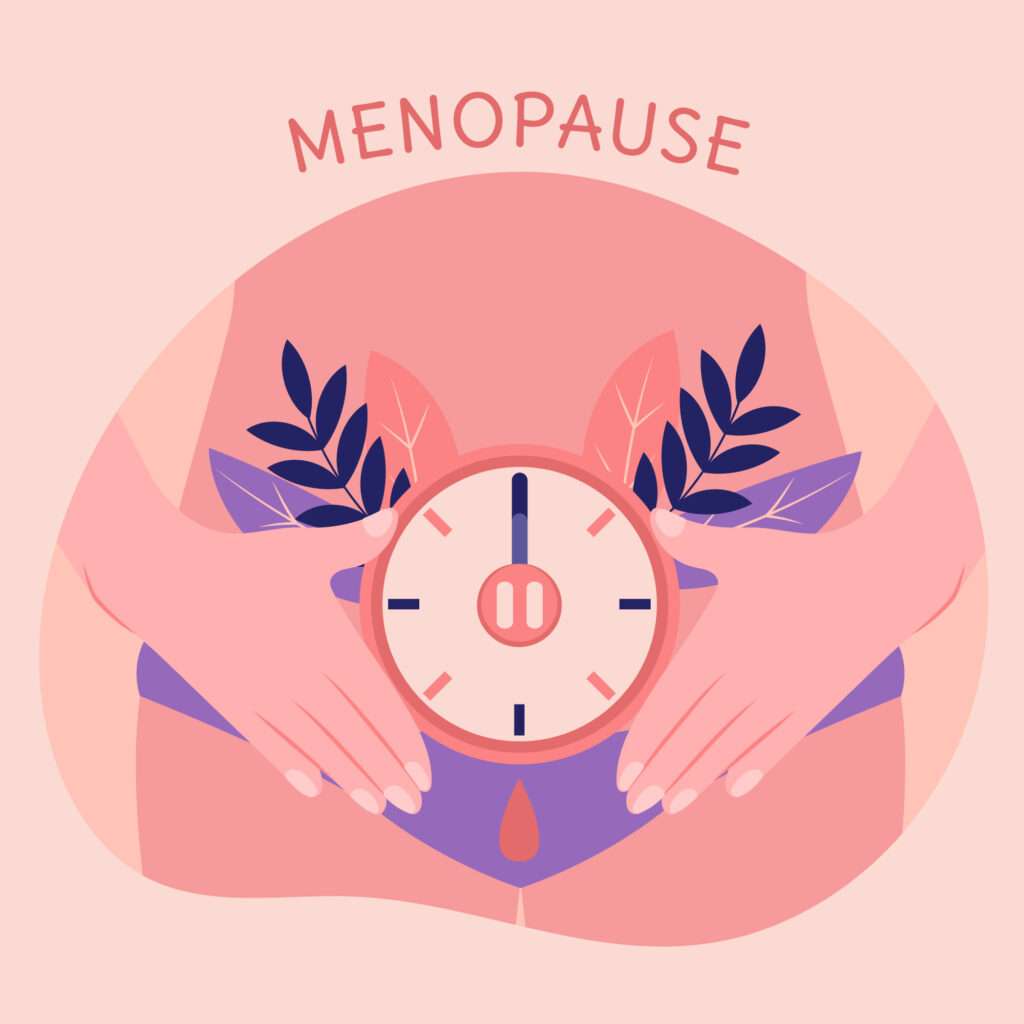Menopause marks a significant transition in a woman’s life, typically between 45 and 55. It signifies the end of the reproductive years as the ovaries gradually produce fewer hormones, particularly estrogen and progesterone. This natural process leads to the cessation of menstruation, and as the hormone levels decline, women experience various physical and emotional changes. Hot flashes, night sweats, irregular periods, mood swings, and vaginal dryness are common symptoms.
While menopause is a natural phase of a woman’s life, the accompanying symptoms can vary widely in intensity and duration. While the physical changes can be challenging, menopause represents a time of newfound freedom from monthly periods and contraception concerns.
“Navigating menopause requires understanding and support,” says Dr. Rishma Pai of Budget IVF & Fertility Centre, often called the best lady gynecologist in Mumbai. “While it’s a normal life stage, the symptoms can be managed through lifestyle adjustments, hormonal therapies, and medical interventions.
Additionally, embracing this stage as a time of transformation and self-care can contribute to a positive experience.”

Are you experiencing unexpected bleeding after 10 years of menopause? Please visit Dr. Rishma Pai, a renowned female gynecologist in Mumbai, for care and personalized guidance.
She can also help you manage menopausal symptoms and is known to provide the most effective Menopause Treatment in Mumbai.
Causes Of Bleeding After 10 Years Of Menopause
Bleeding after 10 years of menopause can be caused by various factors, including:
Hormonal Fluctuations:
Some women experience occasional hormonal shifts that can trigger light sporadic bleeding.
Endometrial Atrophy:
Thinning of the uterine lining due to low estrogen levels can lead to intermittent bleeding.
Uterine Polyps or Fibroids:

Benign (non-cancerous) uterine growths, like fibroids, can cause bleeding even after menopause.
Hormone Therapy:
Hormone replacement therapy may cause breakthrough bleeding.
Infections:
Infections or inflammation of the reproductive tract can result in bleeding.
Certain Medications:
Blood thinners or other medications might affect uterine health and contribute to bleeding.
Medical Conditions:
Conditions like endometrial hyperplasia or certain cancers, like uterine or cervical cancers, can lead to post-menopausal bleeding.
Trauma or Injury:
Physical stress to the vaginal area can cause bleeding.
Unresolved Menstrual Cycles:
Some women might experience irregular periods or spotting due to lingering menstrual patterns.
If you or a loved one notices spotting after 10 years of menopause, please get evaluated by Dr. Rishma Pai, a highly qualified gynaecologist from Budget Fertility Centre near Dadar, Mumbai, to rule out serious underlying causes.
Treatment Options And Management
Managing bleeding after 10 years of menopause involves tailored approaches based on the underlying cause:
Hormone Therapy:
In cases of hormonal imbalance, hormone replacement therapy (HRT) may restore hormonal balance and alleviate bleeding due to hormonal fluctuations or atrophy.
Non-Hormonal Therapies:
Options like low-dose vaginal estrogen or selective estrogen receptor modulators (SERMs) can help without systemic hormone effects.
Medications:
Non-hormonal medications, like nonsteroidal anti-inflammatory drugs (NSAIDs), can manage bleeding linked to inflammation or tissue changes.
Uterine Treatments:

Procedures like endometrial ablation or hysteroscopy can address uterine issues causing bleeding.
Dilation and Curettage (D&C):
Surgical removal of abnormal tissue growths can resolve bleeding and discomfort.
Infection Treatment:
Antibiotics address infections causing inflammation and bleeding.
Cancer Management:
If cancerous changes are detected, treatment options will be discussed based on the diagnosis.
Vaginal Moisturizers:
For bleeding due to thinning vaginal tissues, moisturizers can help alleviate discomfort.
Lifestyle Adjustments:
Adopting a healthy lifestyle with a balanced diet, staying active, and managing stress contribute to overall well-being.
Regular Check-ups:
Routine gynecological examinations help monitor changes and manage bleeding concerns.
Patient Education:
Understanding the condition and its management empowers effective decision-making. Please visit Dr. Rishma Pai, known to many as the best gynaecologist in Mumbai, for an expert diagnosis and to determine the most suitable treatment plan.
Dr. Pai is also well-known for providing successful PCOD Treatment in Mumbai for women having issues with their menstrual cycle.
Conclusion

Experiencing bleeding after a decade of menopause is not uncommon and requires thorough evaluation. While it can stem from various causes, such as hormonal fluctuations, growths, or medical conditions, seeking a professional medical evaluation is crucial. A healthcare expert like Dr. Rishma Pai, renowned for her expertise in gynecological disorders, including PCOS treatment in Mumbai, can provide accurate diagnosis and effective management.
Early intervention ensures timely addressing of concerns, whether due to hormonal shifts, growths, or other factors. With proper guidance, women can confidently navigate this phase, seeking appropriate treatments and achieving optimal gynecological health.
Please ensure that you address bleeding after menopause promptly, as it can signify various underlying issues.
Consult a fertility expert like Dr. Rishma Pai for an accurate diagnosis and treatment options to optimize your physical, emotional, and mental health.
FAQs
1.What causes bleeding after entering menopause?
Bleeding after menopause can be triggered by hormonal imbalances, thinning of the uterine lining, uterine growths like polyps or fibroids, or certain medications. It’s essential to consult a healthcare provider to determine the specific cause and appropriate management.
2. Is any amount of post-menopausal bleeding normal?
While occasional spotting or very light bleeding immediately after menopause may not be uncommon, any sustained or heavy bleeding is considered abnormal and should be evaluated by a medical professional. Post-menopausal bleeding should never be ignored, as it could indicate underlying health issues.
3. How soon should I seek medical attention for post-menopausal bleeding?
If you experience post-menopausal bleeding, it’s recommended to consult a healthcare provider promptly. While only sometimes serious, it’s essential to rule out potential causes and receive proper guidance. Early diagnosis and treatment can lead to better outcomes and peace of mind.







